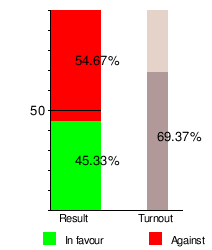On great men wrote:DER SPIEGEL: Mr. President, since entering office in May, you have made significant waves around the world. The German philosopher Georg Wilhelm Friedrich Hegel, who you read during your university studies, once described Napoleon Bonaparte as "the Weltgeist ("world spirit") on horseback." Do you believe that a single person can, in fact, steer history?
Macron: No. Hegel viewed the "great men" as instruments of something far greater. It should be said that in referring to him in that way, he wasn't being particularly nice to Napoleon, because he of course knows that history can always outflank you, that it is always larger than the individual. Hegel believes that an individual can indeed embody the zeitgeist for a moment, but also that the individual isn't always clear they are doing so.
DER SPIEGEL: How must a president, a politician, behave to move things forward and to change history?
Macron: Personally, I don't think it's possible to do great things alone or through individual actions. On the contrary, I think it is only possible to know what to do in a specific moment once you have understood the zeitgeist, and it is only possible to move things forward if you have a sense of responsibility. And that is exactly the goal I have set for myself: to try to encourage France and the French people to change and develop further. But that can only be done as a collective, with one another. You have to bundle the strength of those who want to take that step. The same is true for Europe.
I'm going to try to tie this into something else that resonates with me, Innovation Starvation.Political Heroism wrote:
Macron: That is true. You can anticipate and plan everything, but when you actually experience it, it's different. For me, my office isn't first and foremost a political or technical one. Rather, it is symbolic. I am a strong believer that modern political life must rediscover a sense for symbolism. We need to develop a kind of political heroism. I don't mean that I want to play the hero. But we need to be amenable once again to creating grand narratives. If you like, post-modernism was the worst thing that could have happened to our democracy. The idea that you have to deconstruct and destroy all grand narratives is not a good one. Since then, trust has evaporated in everything and everyone. I am sometimes surprised that it is the media that are the first ones to exhibit a lack of trust in grand narratives. They believe that destroying something is part of their journalistic purpose because something grand must inevitably contain an element of evil. Critique is necessary, but where does this hate for the so-called grand narrative come from?
DER SPIEGEL: Why is this narrative so important?
Macron: I think we need it badly! Why is a portion of our youth so fascinated by extremes, jihadism for example? Why do modern democracies refuse to allow their citizens to dream? Why can't there be such a thing as democratic heroism? Perhaps exactly that is our task: rediscovering something like that together for the 21st century.
...
Macron: What's new is this: Since 2005, when the French and the Dutch voted "no" on a constitution for Europe, nobody has developed a real project for the EU. And certainly not France. If there were ideas, they came from Wolfgang Schäuble or Joschka Fischer, and these German ideas were downright quashed by France. I want to put an end to that. Perhaps I am following in the footsteps of Mitterrand, who really did want to shape Europe. My predecessors, by contrast, thought it was best to say nothing at all and to keep all their options open. That may sound like a tactical approach, but perhaps it was simply because they didn't have any ideas for Europe at all.
Still, I worry that our inability to match the achievements of the 1960s space program might be symptomatic of a general failure of our society to get big things done. My parents and grandparents witnessed the creation of the airplane, the automobile, nuclear energy, and the computer to name only a few. Scientists and engineers who came of age during the first half of the 20th century could look forward to building things that would solve age-old problems, transform the landscape, build the economy, and provide jobs for the burgeoning middle class that was the basis for our stable democracy.
The Deepwater Horizon oil spill of 2010 crystallized my feeling that we have lost our ability to get important things done. The OPEC oil shock was in 1973—almost 40 years ago. It was obvious then that it was crazy for the United States to let itself be held economic hostage to the kinds of countries where oil was being produced. It led to Jimmy Carter’s proposal for the development of an enormous synthetic fuels industry on American soil. Whatever one might think of the merits of the Carter presidency or of this particular proposal, it was, at least, a serious effort to come to grips with the problem.
...
China is frequently cited as a country now executing on Big Stuff, and there’s no doubt they are constructing dams, high-speed rail systems, and rockets at an extraordinary clip. But those are not fundamentally innovative. Their space program, like all other countries’ (including our own), is just parroting work that was done 50 years ago by the Soviets and the Americans. A truly innovative program would involve taking risks (and accepting failures) to pioneer some of the alternative space launch technologies that have been advanced by researchers all over the world during the decades dominated by rockets.
I'll stick with "I agree with what I quoted" and hope others add to the discussion.





